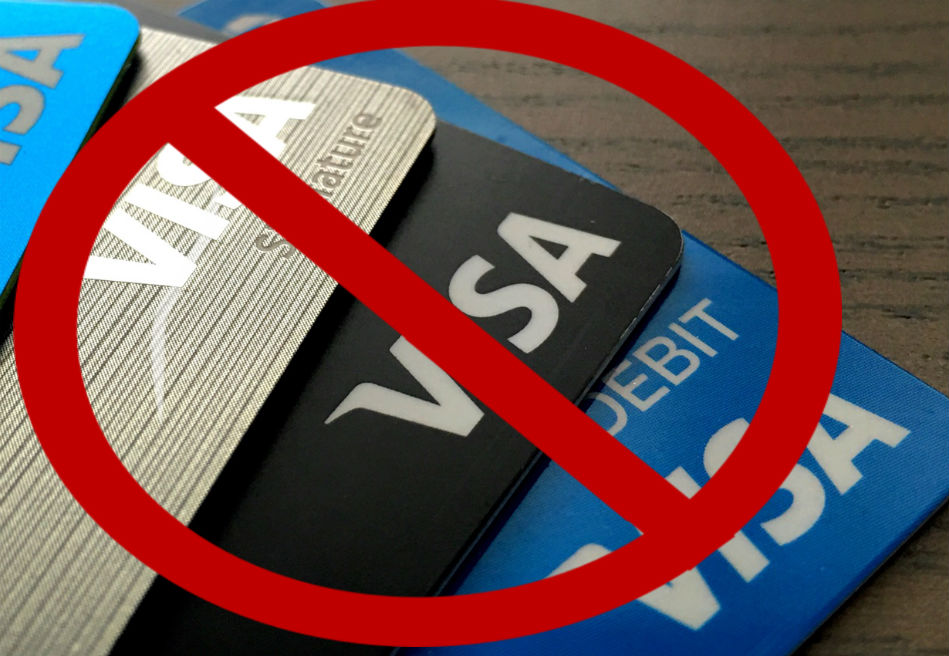Walmart ‘sending strong signal’ with Visa ban in Thunder Bay

Earlier this week, retail giant Walmart banned the use of Visa credit cards at three of its Thunder Bay outlets, with the threat of a nationwide ban looming.
The highly public dispute revolves around so-called merchant fees, or fees paid by Walmart to Visa every time a card is used to make a purchase. Walmart says they’re too high. Visa disagrees. Both sides aren’t backing down.
In a statement issued in June, Walmart Canada claimed it forks over more than $100 million in fees every year in order to accept credit cards. The company has yet to clarify how those fees are divided among major corporations such as Visa, MasterCard and Discover. Days later, in an open letter posted online, Visa claimed it offered Walmart “one of the lowest rates of any merchant in Canada,” and says the company is using its size and scale to gain an unfair advantage over smaller shops.
Alina Nastasoiu, one of DeGroote’s newest faculty members and an expert in corporate loyalty programs, offers her take on the developing standoff:
On Monday, Walmart followed through on its threat of banning Visa cards at Canadian stores, beginning in Thunder Bay. How would you describe this tactic?
If fully implemented, it would be a bold tactic. But at this stage it’s not clear that Walmart will follow through with it. It looks like they are testing the waters in Thunder Bay, while at the same time sending Visa a strong signal.
What impact could this have on customer loyalty to both Walmart and Visa?
Both companies are likely to see a dent in customer loyalty. Walmart may experience the shock right away (with Visa enthusiasts no longer shopping at the store), while Visa could be impacted soon afterward. Long term, Walmart’s ban could also subvert the strong network effect Visa is currently benefiting from. When one of the largest brick-and mortar retailers in Canada no longer accepts Visa, some consumers are likely to abandon the card altogether. One reason for this complete disavowal is related to the fact that consumers like to consolidate their purchases, in order to take advantage of credit cards’ loyalty incentives.
Why use Visa at Walmart? Are there any perks or incentives for customers who use the card at this retailer?
Most Visa cards offer consumers either cash-back or points that can be redeemed for rewards. So Visa card holders have incentives to use their cards as often as possible, including at Walmart. Usually the cash-back is around 1 per cent of the value of purchases. However, consumers who have a Walmart Rewards MasterCard earn 1.25 per cent in cash-back for Walmart purchases and 1 per cent for purchases at other vendors. Thus, comparatively, Walmart shoppers are better off using the retailer’s card rather than any other type of card.
Is this an ideal time for other companies such as MasterCard, American Express or Discover to try and lure customers away from Visa?
MasterCard, Visa’s closest competitor, would be in an especially good position to expand its market share. However, consumers don’t procure their credit cards directly from Visa or MasterCard, but from other financial institutions. So far, consumers have been interested in credit cards’ terms and interest rates, as opposed to whether it’s Visa or MasterCard. In essence, MasterCard’s challenge will be to expand the criteria consumers use when choosing a credit card; for example, from “interest rate and fees” to “interest rate, fees and acceptance in stores.”
Should we anticipate any changes in customer behaviour as a result of this? For example, Walmart customers reaching for debit cards or cash more often?
Yes, customers who will remain loyal to Walmart may use debit cards or cash more often, not only at Walmart but in general.
Do you expect the disagreement will be resolved before the Visa ban extends to more Walmart stores?
It’s clear that both companies would have a lot to lose if the disagreement is not resolved, so I’m inclined to say there’s a good chance they will find a way to work together. Walmart has issued a very credible threat. I expect Visa will respond to it, perhaps by making some concessions.
—
Originally from Romania, Alina Nastasoiu came to DeGroote in 2016 from Ivey Business School, where she recently earned a PhD in Marketing. Her primary area of expertise is loyalty programs – a common corporate tool that rewards repeat customers with exclusive perks and bonuses. More specifically, she’s interested in studying how these programs change consumer behaviour, as well as how they impact a company’s bottom line.


